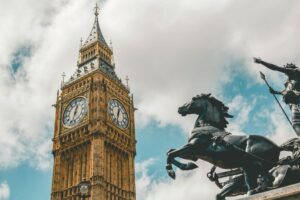peter_IFAMAG reads Twitter so you don’t have to.
Covid crisis continues as work habits seem to be affected long term. Government borrowing when compared to GDP reaches highest level since 1963, whilst FCA announce mortgage holiday extension. New infromation comes to light on the Coronavirus reinfection rate and how it will affect GDP going forward.
Chris Giles reveals “eye-popping” data showing the levels of government borrowing in April.
There was an eye-popping amount of government borrowing in April – more than any month of the financial crisis
— Chris Giles (@ChrisGiles_) May 22, 2020
FCA announce mortgage holiday extension.
NEWS. Mortgage payment holidays extended by @thefca. Pls share.
– if not had one uv now til 31 Oct to apply
– if urs is ending, u can ask for another 3mths if struggling
– no impact on credit file (but lenders can factor it in, in other ways)
– repossessions blocked til 31 oct— Martin Lewis (@MartinSLewis) May 22, 2020
Weath Manager reveal failure rates of FCA regulated firms fall 29% over first four months of the year.
https://twitter.com/CitywireWealth/status/1263801594438733825
Ben Martin highlights working habits won’t go back to normal any time soon. RBS extend home working until at least September.
Workers shouldn’t expect to return to their offices any time soon if RBS is anything to go by: the bank has told more than 50,000 of its staff to work from home until at least the end of September https://t.co/5Sss9EOW99
— Ben Martin (@Benjaminwmartin) May 22, 2020
Fascinating new information sheds light on how the ‘R’ rate of infection interacts with GDP.
German Ifo institute tries to calculate trade off between GDP impact and infection (R) rate of lockdown easing or tightening…
Basically – hammering the economy to get it down to 0.1 would be v bad, but letting it go above 1 also be v bad bad.. 0.6-0.75, is apparently least bad https://t.co/s4AJJD7t6L
— Faisal Islam (@faisalislam) May 22, 2020
What are your thoughts on these tweets?
Tweet your responses to @peter_IFAMAG











